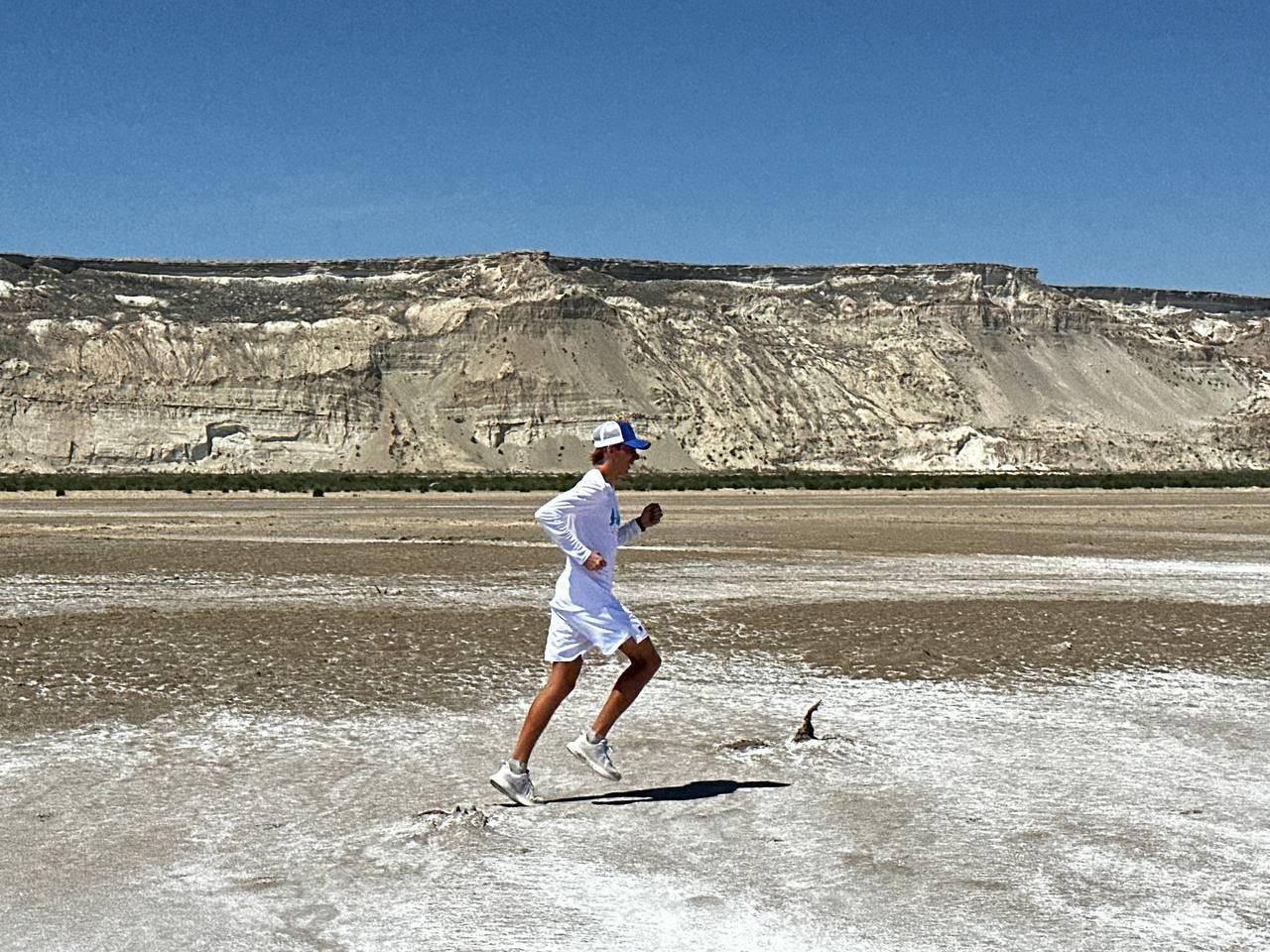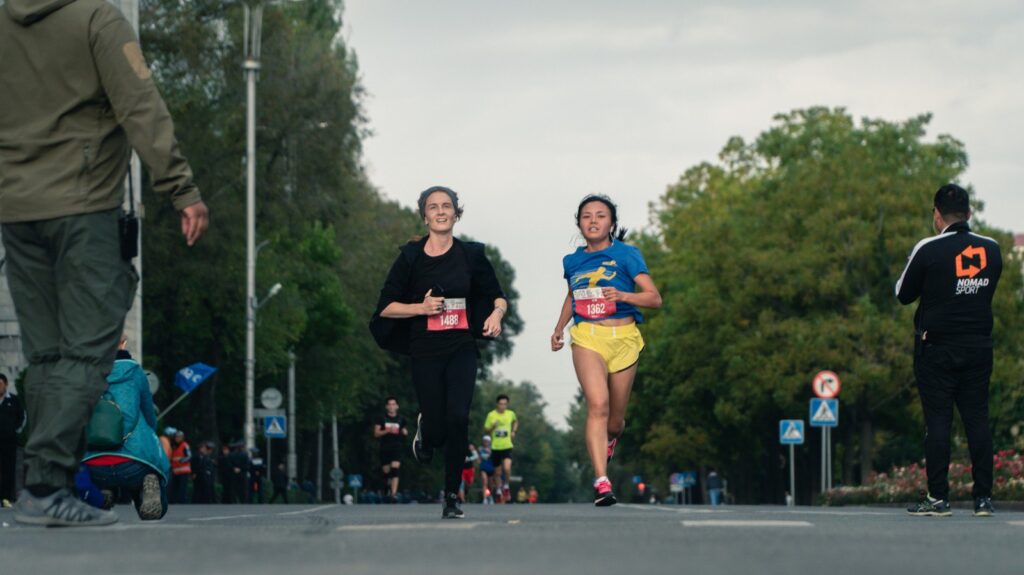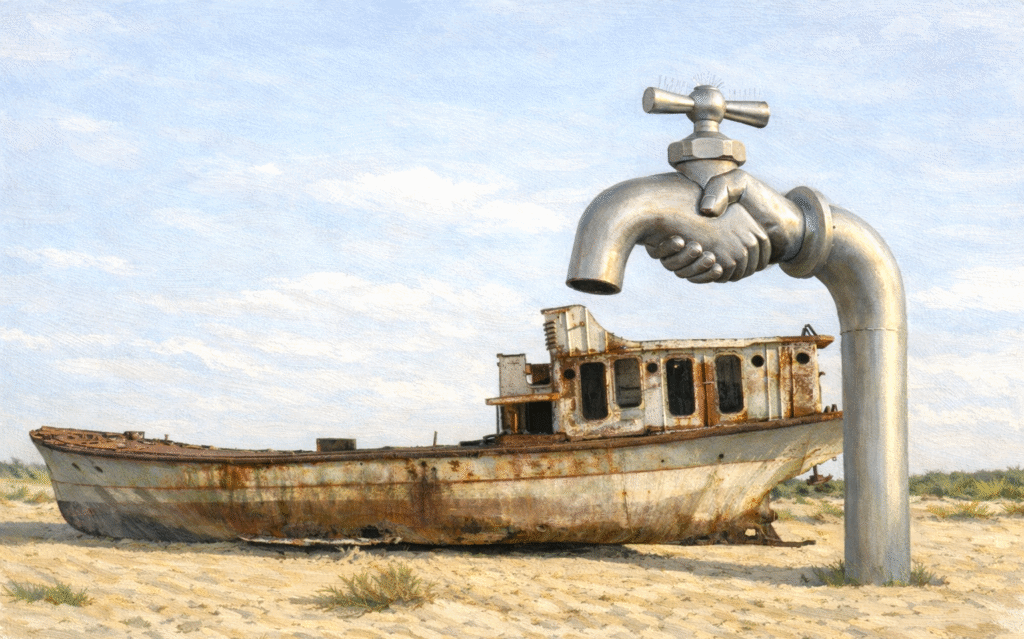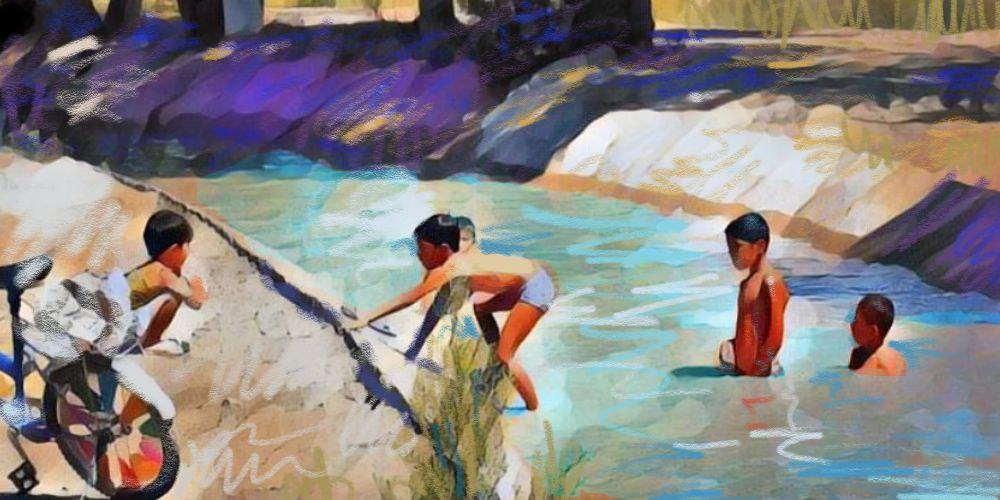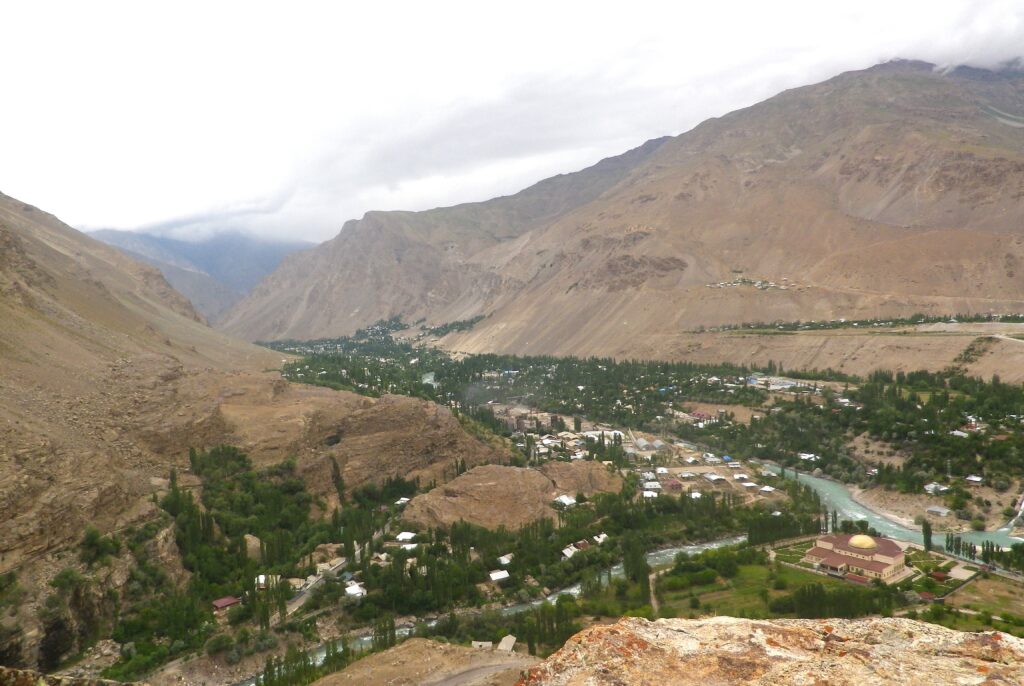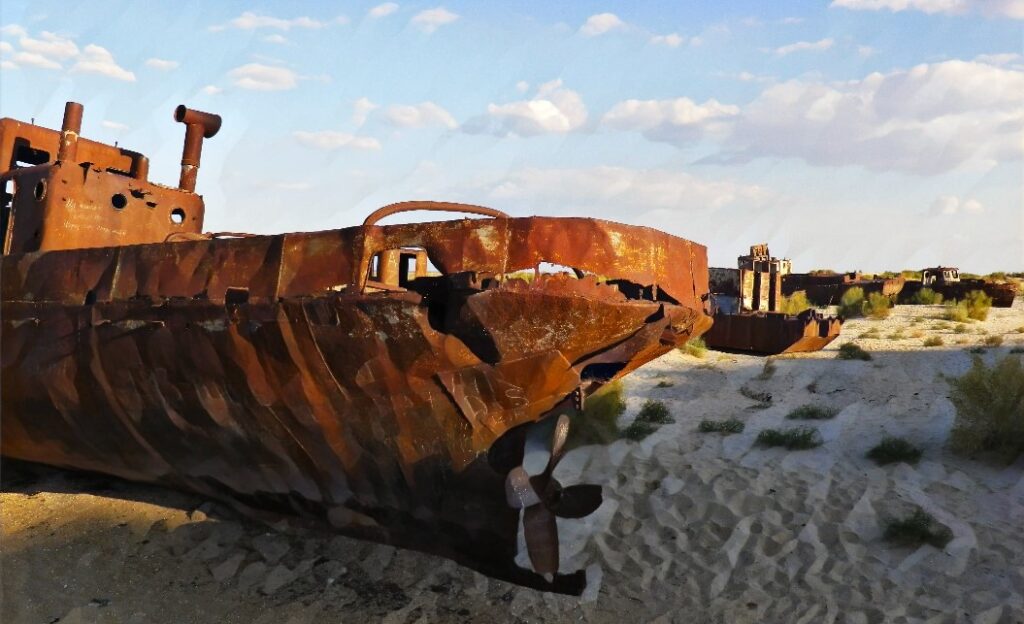The dry bed of the Aral Sea, a symbol of ecological disaster in Central Asia, will host one of the world’s more extreme marathons on Sunday.
Supported by aid stations and medical staff, a small band of athletes will run on sand, gravel and stones, inhaling salty air in scorching temperatures and bracing themselves against strong winds. The Aral Sea Eco Marathon is being held in Karakalpakstan, Uzbekistan and planners aim to draw attention to what was once the fourth biggest saltwater lake and is now about 10 percent of its original size. Race promoters also want to highlight the need for sustainable use of water. The marathon roughly coincides with the United Nations-designated day to combat desertification and drought, which falls on June 17.
Andrey Kulikov, founder of the ProRun running school in Uzbekistan, ran a marathon distance in the area last year with American ultramarathoner Dean Karnazes in 4:51:18. Kulikov planned this year’s event with the help of Aziz Abdukhakimov, Uzbekistan’s minister of ecology, environmental protection and climate change. A limit of 100 runners was set, though far fewer signed up. Still, Kulikov said participants are from countries including Japan, China, France, Pakistan, Kenya, Togo and the Philippines. He hopes to expand the event next year.
Uzbek participant Denis Mambetov said in a text interview on Telegram that he is taking part because of “a passion for adventure, for something new and unusual, to test one’s strength, and, of course, to draw the attention of others to an environmental problem of global proportions.”
The Aral Sea, which lies between northern Uzbekistan and southern Kazakhstan, began shrinking significantly in the 1960s when water from the rivers that fed it was rerouted for Soviet-led agricultural irrigation. The subsequent emergency of the Aralkum Desert and the sand and dust storms arising from the world’s newest desert have polluted the environment and severely affected health in local communities.
There are regional and international efforts to restore the Aral Sea ecosystem, including seed-planting and the implementation of water-saving technologies. The five Central Asian countries – Uzbekistan, Kazakhstan, Kyrgyzstan, Tajikistan and Turkmenistan – formed a group three decades ago, soon after independence from Soviet rule, to address the problem. The gap between goals and results is wide, though the countries are recognizing the wider threat of water scarcity as the planet becomes hotter.
“Colleagues are well aware that the problem of water shortage in Central Asia has become acute and irreversible and will only worsen in the future,” Uzbek President Shavkat Mirziyoyev said at a regional meeting on the Aral Sea last year. “Experts believe that in some regions of Central Asia pressure on water resources will increase three times by 2040. Economic damage could eventually reach 11 percent of regional gross product.”
Nurbek Khusanov, who will run the marathon on Sunday, works at SQB, a top bank in Uzbekistan, and is a leader of its efforts to promote “green” policies that aid the environment. The marathon will “attract more people to the Aral Sea issue,” he said.
“Everybody has a hobby and my hobby is running,” said Khusanov, who started long-distance running in 2020. “I think running is one of the best sports for health and means of expending energy. When I am running I forget all issues, but think about Allah.”
Runner Mambetov got into the sport around 2018-2019, paused during the Covid-19 pandemic and returned to it in 2021 after “a motivational push” when he heard Abdullaev Yusuf Negmatovich, now the rector of Samarkand International University of Technology, say at the age of 77 that he would run a three-kilometer race. Mambetov ran in the Tashkent marathon in 2021 and participated in marathons in Kazakhstan and logged a personal best time of 4:40 in the Bangkok marathon last year. His wife, Elmira, also took part in races.
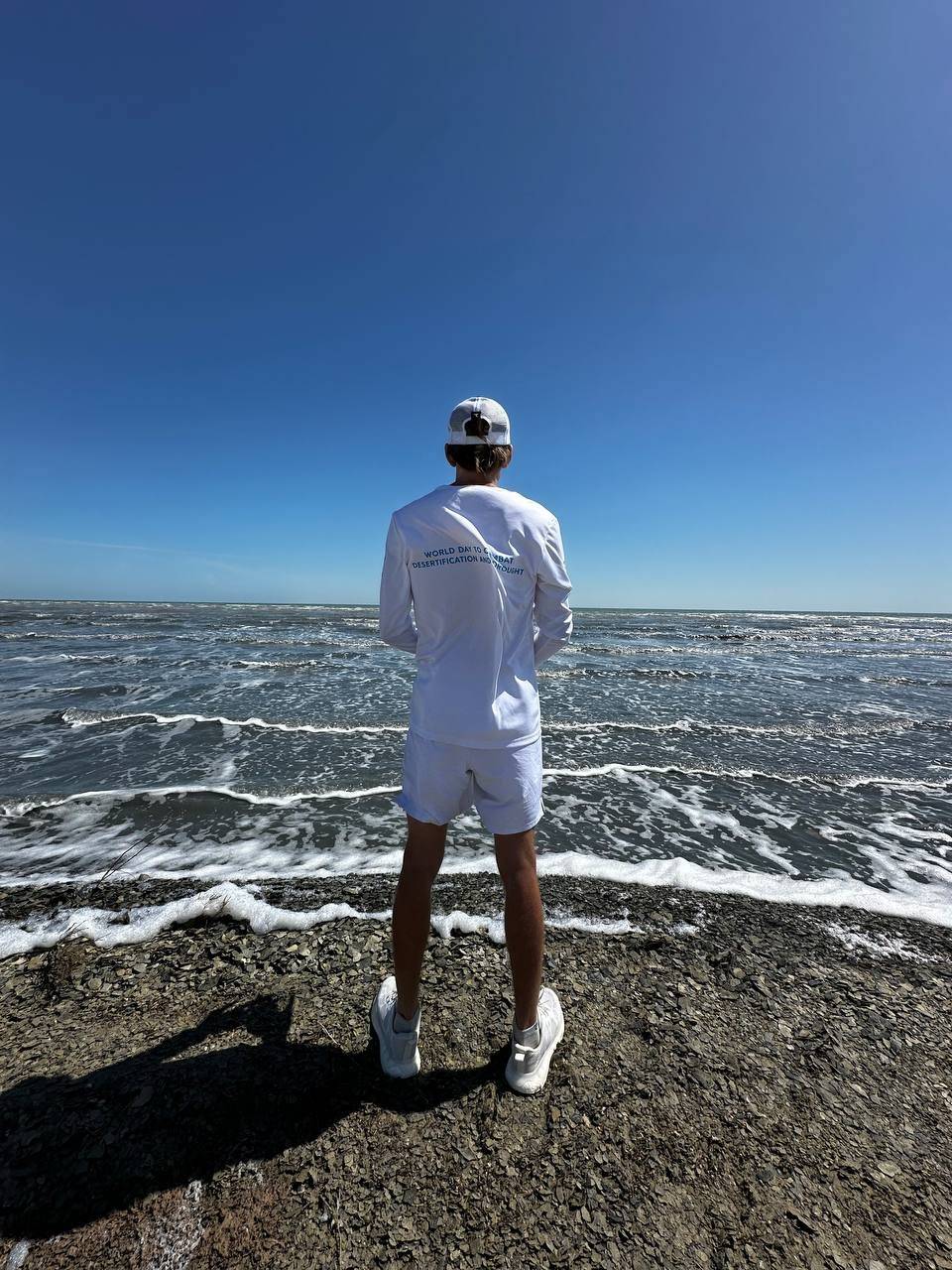
Marathoner Andrey Kulikov stands on the shores of what remains of the Aral Sea. (Photo provided by Andrey Kulikov).
“During all this time, we have accumulated in our piggy bank a large number of medals, numbers, running T-shirts and, of course, emotions and impressions,” Mambetov said. “One day, when we were driving from another race in Kazakhstan back to Uzbekistan, in the queue at the border I saw an inscription on a car… ‘Don’t save money, save moments.”’
“Now I am promoting this point of view,” he said.
